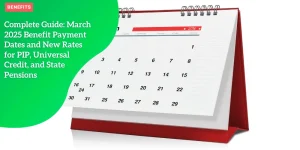Understanding the Winter Fuel Payment Reform: From 11.4M to 1.5M Recipients – What Changed?
Anúncios
Overview of the Reform
The UK’s Winter Fuel Payment scheme has recently undergone a significant overhaul, resulting in a dramatic reduction in the number of eligible recipients, dropping from 11.4 million to 1.5 million pensioners.
This substantial change aims to address a looming £22 billion deficit in public finances.
Anúncios
A Major Shift in Policy
Previously, the Winter Fuel Payment was a universal benefit available to all pensioners.
This broad eligibility ensured that millions of seniors received this financial support to help with their heating costs.
Anúncios
However, with the newly introduced changes, only the country’s most economically disadvantaged pensioners will now qualify.
Financial Objectives
The primary goal of this reform is to make a significant contribution toward closing the £22 billion financial gap.
By narrowing the pool of eligible recipients, the government projects it will save approximately £1.5 billion annually.
In the context of pressing economic constraints, such cost-saving strategies are deemed critical.
Maintaining Payment Amounts
Despite the stringent new eligibility criteria, the actual payment amounts remain unaltered:
- £200 for households with members under 80
- £300 for households with someone over 80
These payment amounts aim to provide substantial support for those who qualify, ensuring that they can manage their heating bills during the cold winter months.
Toward Targeted Support
This reform represents a shift towards more focused financial support, narrowing down the beneficiaries to those with the most need.
By tailoring the benefits to pensioners who receive Pension Credit and other specific qualifying benefits, the government aims to better address the needs of the poorest seniors.
Moving Forward
Understanding and navigating these changes is crucial for pensioners and their families.
It’s essential to stay informed about the revised criteria and the claiming process to maximize the support provided under the current scheme.
The upcoming sections will delve further into the new eligibility criteria, Pension Credit, and the assistance available to ensure that those in need do not miss out on crucial support.
New Eligibility Criteria
Revised Criteria for Winter Fuel Payment
The new reforms have redefined who qualifies for the Winter Fuel Payment, dramatically narrowing the pool of eligible pensioners from 11.4 million to 1.5 million.
Under the new guidelines, recipients must not only be over the state pension age but also need to receive Pension Credit or certain qualifying benefits that signal significant financial need.
State Pension Age and Pension Credit
To be eligible now, recipients must meet two critical requirements:
- Be over the state pension age.
- Receive Pension Credit.
Pension Credit is divided into two components: Guarantee Credit, which ensures a minimum weekly income, and Savings Credit, available to those who reached state pension age before April 6, 2016.
Qualification for Pension Credit opens the door to various other benefits, making it a crucial aspect of the eligibility criteria.
Qualifying Benefits
The reform stipulates that only those who receive specific benefits are eligible for the Winter Fuel Payment. These benefits include:
- Income Support
- Jobseeker’s Allowance (income-based)
- Employment Support Allowance (income-related)
- Universal Credit
This targeted approach aims to support those pensioners who are most economically disadvantaged and in dire need of financial help to cover their winter fuel costs.
Focus on the Poorest Pensioners
The reform’s focus is markedly shifted towards supporting the poorest pensioners.
By limiting the eligibility to those who are already receiving means-tested benefits, the new criteria ensure that the Winter Fuel Payment reaches those who face the greatest financial hardships during the coldest months.
Balancing the need to manage a £22 billion deficit with the imperative to support vulnerable populations continues to spur debate.
This nuanced approach, while financially necessary, has sparked controversy given the broader impact on pensioners.
As we delve deeper into the implications of this reform, understanding Pension Credit becomes increasingly vital.
Understanding Pension Credit
Guarantee Credit
Guarantee Credit is a key component of Pension Credit, designed to ensure that pensioners do not fall below a specific income level.
For single pensioners, it tops up weekly income to a minimum of £218.15. Couples receiving Guarantee Credit see their combined weekly income raised to £332.95.
This financial support aims to cushion the most financially vulnerable against economic hardships, particularly in times of rising living costs.
Savings Credit
Savings Credit is another essential part of Pension Credit, though it is only available to individuals who reached State Pension age before April 6, 2016.
This credit offers an additional income boost and serves to reward those who have managed to save some money for their retirement.
However, eligibility for Savings Credit can be more complex, as it considers both savings and retirement income in its calculations.
Additional Benefits from Pension Credit
Qualifying for Pension Credit opens doors to a variety of additional benefits beyond the Winter Fuel Payment:
- Housing Costs: Pension Credit can help with rent or mortgage interest payments.
- Council Tax: Depending on the local council’s scheme, there may be reductions in council tax.
- Heating Bills: Pensioners can also qualify for Cold Weather Payments or the Warm Home Discount, providing much-needed support during the colder months.
Understanding how these aspects of Pension Credit work is crucial for pensioners aiming to maximize their financial support.
Being informed about these benefits can significantly impact a pensioner’s quality of life and financial stability.
Parliamentary Response and Controversy
The Winter Fuel Payment reform has sparked a significant debate within Parliament and beyond.
With a vote of 348 in favor and 228 against, the decision to implement the payment cuts was sharply contested.
Concerns About Timing
One of the primary concerns revolves around the timing of the reform.
It comes amid rising energy costs and a recent 10% increase in the energy price cap, making it particularly hard on pensioners who are already struggling.
This timing has drawn criticism from many quarters, arguing that such cuts place undue stress on the elderly during winter months when heating is essential.
Lack of Transparency
Critics have also raised issues regarding the transparency of the decision-making process.
Many believe that the government did not provide clear justifications for the dramatic reduction in the number of eligible recipients.
For instance, Labour MP Rachel Maskell pointed out that many pensioners are already hesitant to turn on their heating due to high costs, and this cut exacerbates their difficulties.
Broad Implications
This decision emphasizes the ongoing challenge of balancing public finances with providing adequate support to vulnerable populations.
While the reform aims to contribute to reducing a £22 billion deficit by saving £1.5 billion annually, the social cost may be significant, leading to increased hardship for many pensioners.
The discussion highlights the importance of staying informed about changes in benefit eligibility and exploring additional support mechanisms.
It underscores the need for continuous dialogue on how best to meet the needs of the UK’s aging population while managing economic constraints.
Claiming Process and Support
Navigating the new Winter Fuel Payment reforms can seem daunting, but the government has tried to streamline the process to make it easier for eligible recipients.
Here’s how it works:
Automatic Payments
If you meet the new eligibility criteria, you will automatically receive the Winter Fuel Payment directly into your account.
The government sends out notification letters every autumn, informing you of the amount you will receive and any relevant details about the payment process.
Claiming Pension Credit
If you haven’t yet claimed Pension Credit but think you might be eligible, now is the time to do it.
Claiming this benefit is relatively straightforward and can be done in two ways:
- Phone Application: Call the Department for Work and Pensions (DWP) and follow the guided instructions to complete your application.
- Online Application: Visit the DWP website or use an approved online service to apply digitally.
Using the Online Calculator
Before you start the application process, you can use the online Pension Credit calculator to check your eligibility and get an estimate of the benefits you might receive.
This tool is invaluable in helping you understand whether you qualify and what to expect in terms of financial support.
Staying well-informed about these new changes and understanding the claiming process will help ensure that you do not miss out on the essential support available during the colder months.
Impact and Future Implications
Savings and Financial Impact
The Winter Fuel Payment reform is projected to save the government an estimated £1.5 billion annually.
These funds are crucial in addressing the significant £22 billion deficit in public finances.
By focusing on the most economically disadvantaged pensioners, the reform ensures that limited resources are allocated where they are needed most.
However, these savings come at a social cost that continues to spark debate among policymakers and the public.
Balancing Public Finances and Support
One of the critical discussions surrounding the Winter Fuel Payment cut is the balance between maintaining public finances and providing adequate support to the UK’s vulnerable populations.
Critics point out that while the financial savings are notable, the social costs may be substantial.
Many elderly individuals now excluded from the payment may struggle with rising energy costs, leading to increased hardship during winter months.
Importance of Staying Informed
Given the changes, staying informed about benefit entitlements is more crucial than ever.
Understanding the new guidelines and the specific criteria for eligibility can directly impact one’s financial stability.
Pensioners should proactively check their eligibility for Pension Credit, which can open the door to additional support and possible benefits.
Utilizing tools such as the online calculator can provide clarity and assist in navigating these reforms.
Future Implications
Moving forward, the debate will likely continue to focus on how best to balance fiscal responsibility with the need to support vulnerable citizens.
As economic conditions and living costs fluctuate, the importance of staying informed and adapting to policy changes becomes increasingly essential for pensioners and their advocates.
This ongoing dialogue underscores the need for a thoughtful approach to policy that considers both economic and social dimensions.







